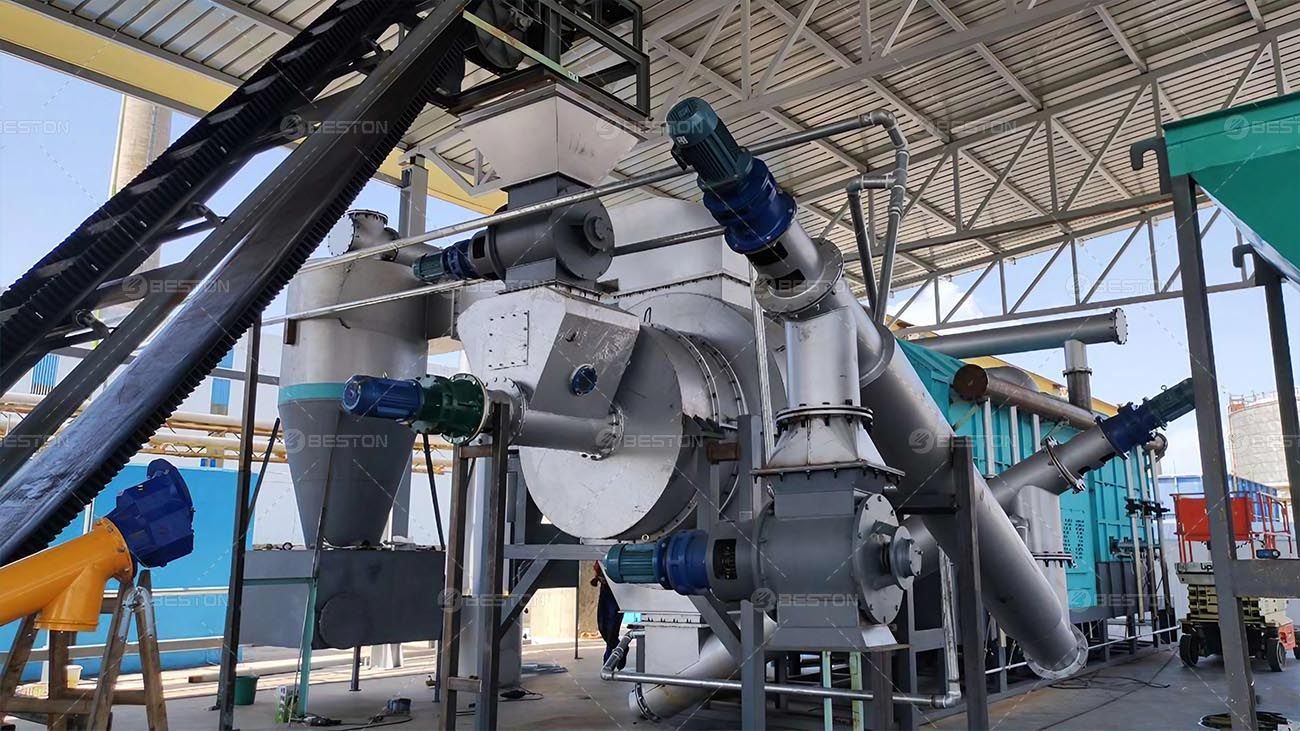Agricultural Sustainability through Biochar Production
- By Beston Charcoal
- •
- 07 Apr, 2025
- •
Reducing Agricultural Waste
Agricultural waste, including crop residues, pruning, and straw, often represents a major disposal challenge for farmers. Traditional disposal methods, such as burning or burying, contribute to air pollution, land degradation, and the release of greenhouse gases. Biochar production provides a highly effective alternative to these harmful practices. By processing agricultural waste into biochar using a biochar making machine, the waste is transformed into a stable form that can be stored indefinitely without releasing harmful emissions.
In addition, biochar production offers a method of waste valorization that can add economic value to otherwise discarded materials. This not only helps reduce the environmental footprint of agricultural operations but also provides a profitable outlet for what would otherwise be considered a nuisance.

Carbon Sequestration and Climate Change Mitigation
Another critical benefit of biomass pyrolysis process from agricultural waste is its potential to mitigate climate change. Biochar acts as a stable form of carbon, sequestering it in the soil for centuries. When agricultural waste is pyrolyzed, the carbon content of the waste is captured in the biochar, preventing the release of carbon dioxide (CO2) and methane (CH4) into the atmosphere. In contrast, traditional waste disposal methods, such as burning, release significant amounts of greenhouse gases.
The carbon sequestration potential of biochar is substantial. When produced and applied correctly, biochar can sequester carbon in soils, effectively acting as a long-term carbon sink. This process helps offset carbon emissions and contributes to global efforts to reduce atmospheric CO2 levels. For farmers, this presents an opportunity to participate in carbon credit programs, where they can sell the carbon sequestration credits generated by their biochar production activities.
Improving Soil Health
Biochar's ability to improve soil health is one of the most well-documented benefits of its production from agricultural waste. When added to soil, biochar enhances its physical, chemical, and biological properties, leading to increased soil fertility and productivity. One of the primary ways biochar benefits soil is by improving its structure. Biochar increases soil porosity, which improves water retention and aeration. This makes the soil more conducive to root growth, especially in regions that experience drought conditions.
Moreover, biochar helps improve the soil's nutrient-holding capacity. It acts as a sponge for essential nutrients such as nitrogen, phosphorus, and potassium, reducing nutrient leaching and enhancing nutrient availability for crops. This can reduce the need for synthetic fertilizers, which are often expensive and harmful to the environment. As a result, biochar production from agricultural waste can be an effective tool for reducing dependency on chemical fertilizers while promoting sustainable farming practices.
Biochar also provides a habitat for beneficial soil microbes. The porous structure of biochar supports microbial communities that are essential for nutrient cycling and organic matter decomposition. These microbes contribute to enhanced soil health, promoting greater plant growth and resilience.
Enhancing Crop Yields
Biochar's impact on soil health has been shown to result in improved crop yields. Studies have demonstrated that adding biochar to soils can enhance plant growth, particularly in nutrient-deficient soils. This is due to biochar's ability to improve nutrient retention, enhance microbial activity, and increase soil moisture availability. With increased crop yields, farmers can achieve better returns on their investment, making biochar production a financially viable option.
In addition to increasing productivity, biochar can also reduce the reliance on chemical pesticides. The enhanced soil structure and microbial activity fostered by biochar create a more resilient environment for crops, reducing susceptibility to diseases and pests. This further minimizes the need for harmful chemicals, leading to a healthier and more sustainable farming operation.
Economic Viability and Market Demand
The economic potential of biochar production from agricultural waste is significant. The initial investment in a biochar machine may seem substantial, but the returns can be considerable. In addition to enhancing soil fertility and crop yields, biochar has growing demand in various markets, including agriculture, horticulture, and even energy production.
Biochar can be sold as a soil amendment for agriculture and landscaping, a key component in sustainable farming practices. It is also in demand in the environmental sector, where it is used for water filtration, waste treatment, and carbon sequestration. These markets provide opportunities for farmers and businesses to generate additional revenue streams from their biochar production operations.
The increasing focus on sustainability and carbon reduction in agriculture further bolsters the market potential of biochar. Governments and organizations around the world are offering incentives for sustainable practices, including the use of biochar in carbon offset programs. As a result, biochar production from agricultural waste is not only an environmentally beneficial practice but also a promising economic opportunity.
